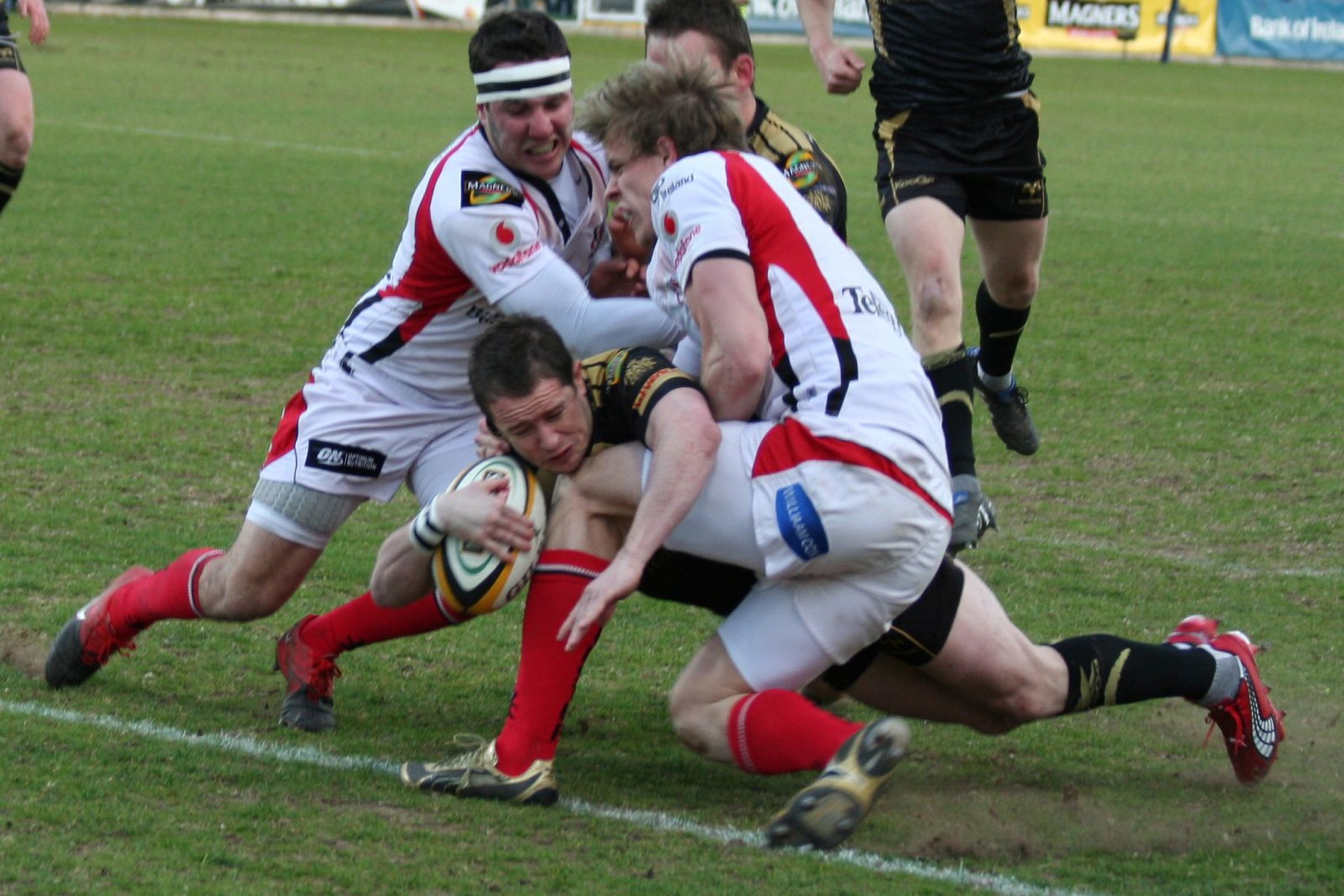They are some of the best-known lines from one of the nation’s favourite poems, the mantra of numerous self-help manuals and an inspiration for a range of politicians from President Franklin D Roosevelt to Prime Minister Margaret Thatcher. “If you can meet with Triumph and Disaster, and treat those two imposters just the same.”
But while the words of Rudyard Kipling’s poem are familiar, the application of them is altogether more challenging. How does one live without being lifted by success or dumped by failure? How can anyone maintain such detachment from the vicissitudes of life? After playing in 69 international rugby matches, Ireland’s wing three-quarter Andrew Trimble knows the highs and lows of professional sport. Last year, the team achieved its best ever series of results, with victories over southern hemisphere giants Australia and South Africa and then, for the first time in 111 years, Ireland beat the reigning world champions, the New Zealand All Blacks.
“There’s no bigger moment than beating the All Blacks,” Trimble explains. “After the game, we were walking around just shaking our heads and saying, ‘What have we done? We’ve just beaten the All Blacks!’ No Irish team has ever done this before.”
So was his life suddenly and completely fulfilled by winning these important matches?
“I love the game,” he says. “It’s a driving force and a massive part of what I want to do. But it’s important to be reminded that there’s something else out there, there’s something more important than rugby.” We’re seated in the wooden pews of Ballyalbany Presbyterian Church in County Monaghan, about two miles from where the international team has just completed an open training session in preparation for Saturday’s Six Nations match against France. Standing on the touchline throughout the session, it’s hard to imagine how rugby union professionals can do anything other than submit themselves to the demands of the game. It’s relentlessly fast, consistently ferocious. It is all-consuming. Off the field, Trimble is impeccably courteous to every autograph-hunter and maintains that having “something more important than rugby” actually enables him to cope better with the pressures of professional sport. Just 16 months ago, after two operations on the same foot injury were followed by a stress fracture, he began to believe that his career might be over.
Trimble was dropped from Ireland’s squad for World Cup 2015 and, aged 29, was faced with losing something that had dominated his life since the age of seven. “If it’s over, you have to draw on something else so rugby doesn’t become the be-all-and-end-all. It doesn’t define me, I’m defined by something more important. It’s a different mindset and perspective.”So what is that perspective? “There’s an eternal perspective,” he explains. “Rugby lasts for 10, 15 years but the perspective of having a faith, and a sincere faith, is something that doesn’t end and something that lasts forever.”
Trimble believes that spirituality enhances his love for the sport.
“I’m far happier having that perspective and knowing that there is a bigger picture than putting all my trust in rugby, in a career that can be over in 10 years or a lot less than 10 years.” He says that his Christian faith has also enabled him to fight against the temptation to become entirely self-absorbed. Last year, he visited a camp in Tanzania. It’s run by Oxfam and houses hundreds of refugees from Burundi. He was profoundly moved by the experience. “Some of these people will live their entire lives in refugee camps. They had families, they had careers, they had hopes and dreams and they’ve been cut short.” Trimble laments his own ignorance of the issue and says if he hadn’t been taken to Tanzania by Oxfam, he would never have known about the refugee crisis in Africa. And his motivation to do something is shaped by his theology. “Pope Francis says they’re all created in the image of God.
They’re just like you and me, they’re no less special. It’s a real shame that they’re forgotten about because they’re considered less important.” With that, our time together runs out and Trimble returns to the Ireland training camp – with the French in his sights. He certainly embodies Kipling’s view that triumph and disaster should be treated “just the same”. But in some ways, his approach is closer to that of 17th Century poet Richard Lovelace. In his poem, To Lucasta, Going to the Wars, Lovelace argues that his affections are only heightened by being answerable to a higher authority. “I could not love thee, Dear, so much, Loved I not honour more.”
According to Andrew Trimble, an eternal perspective does the same for him – win, lose or draw.

